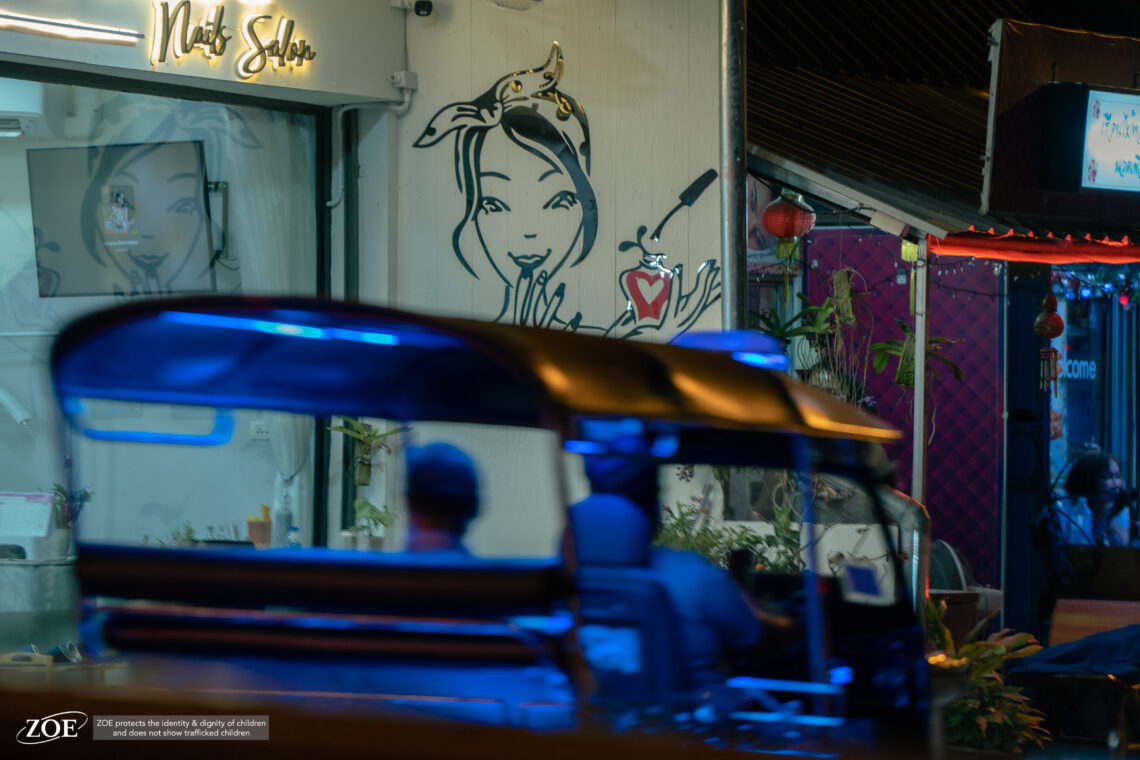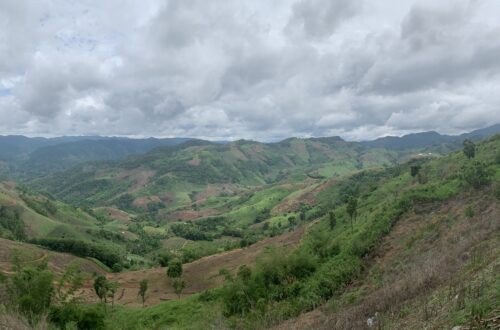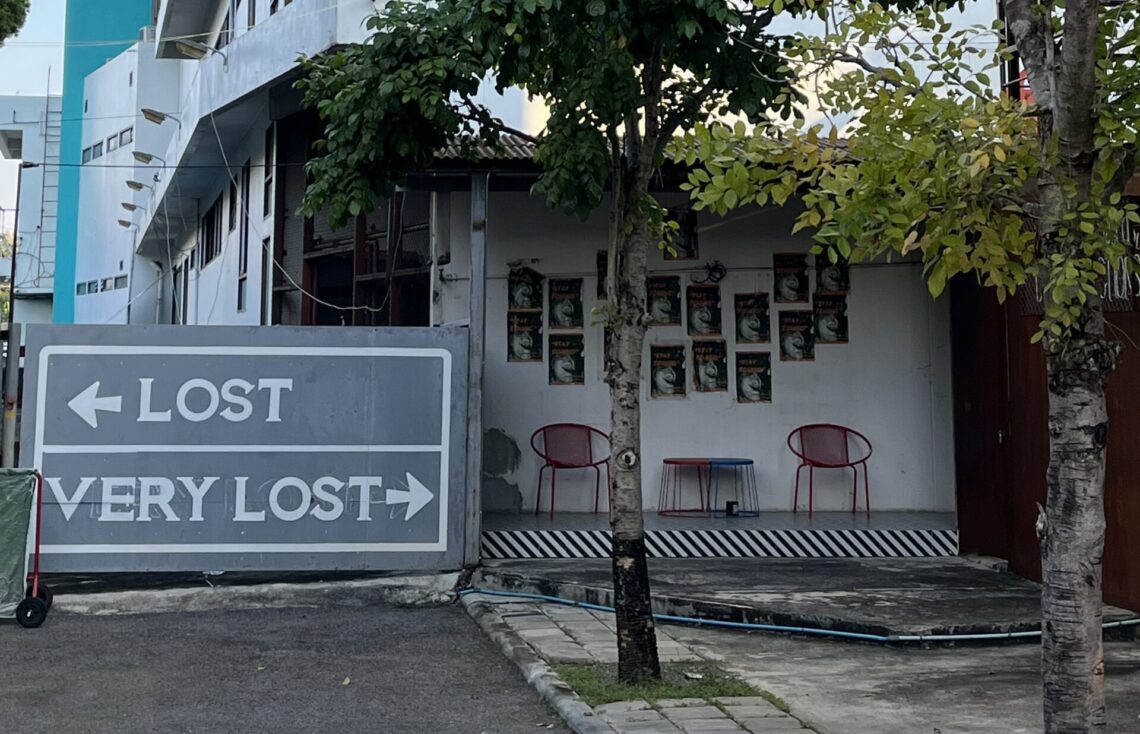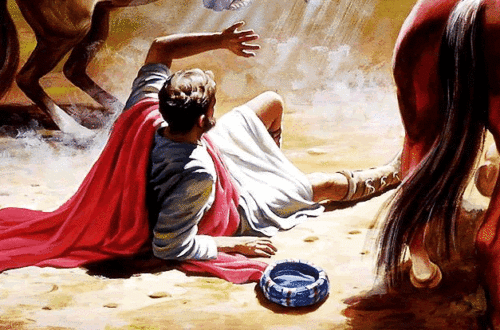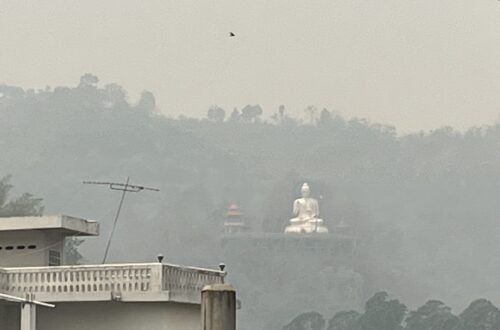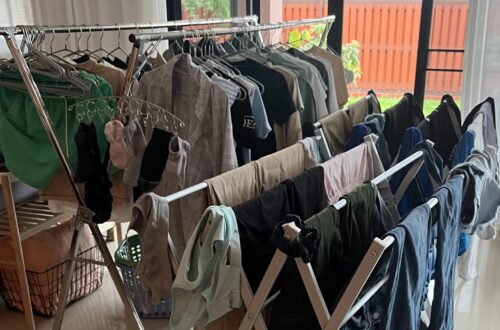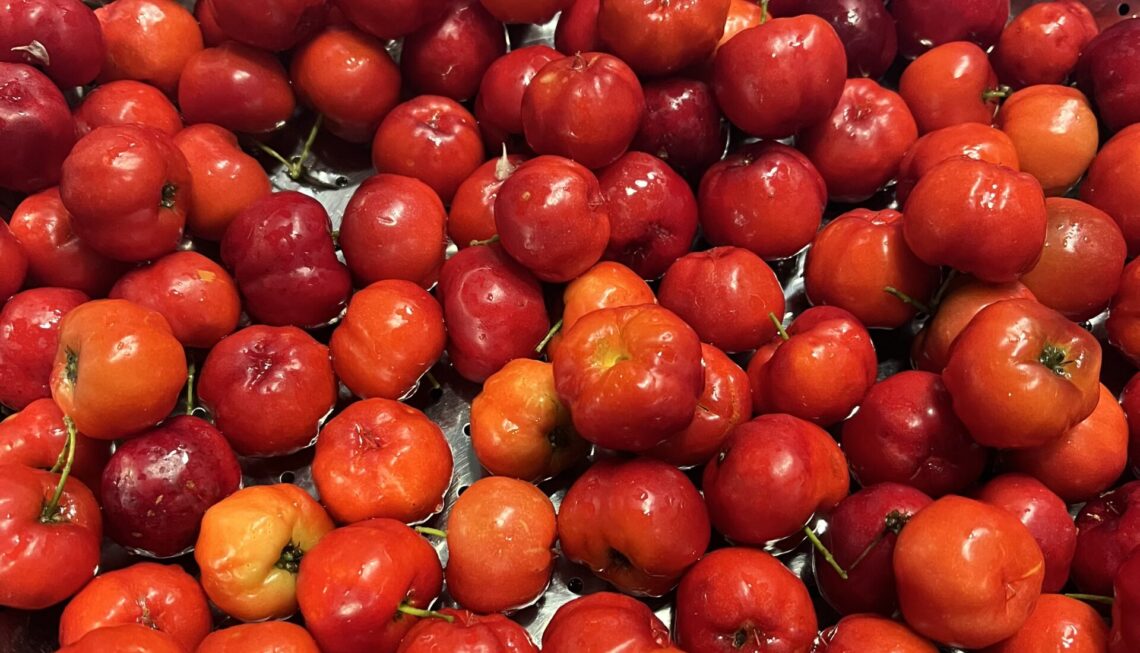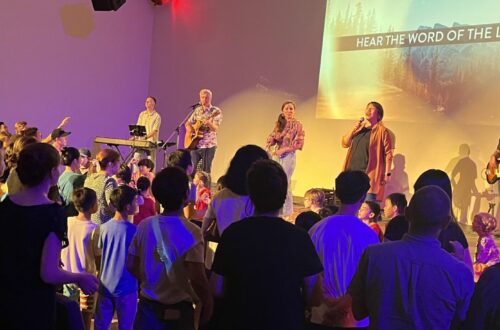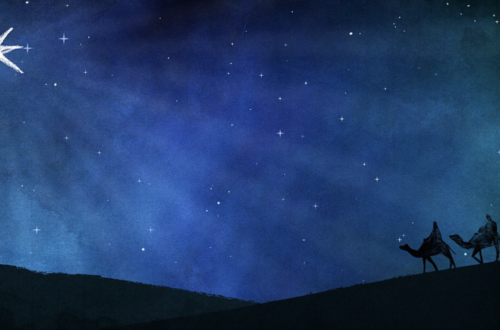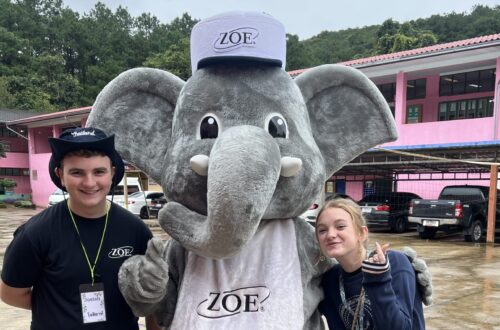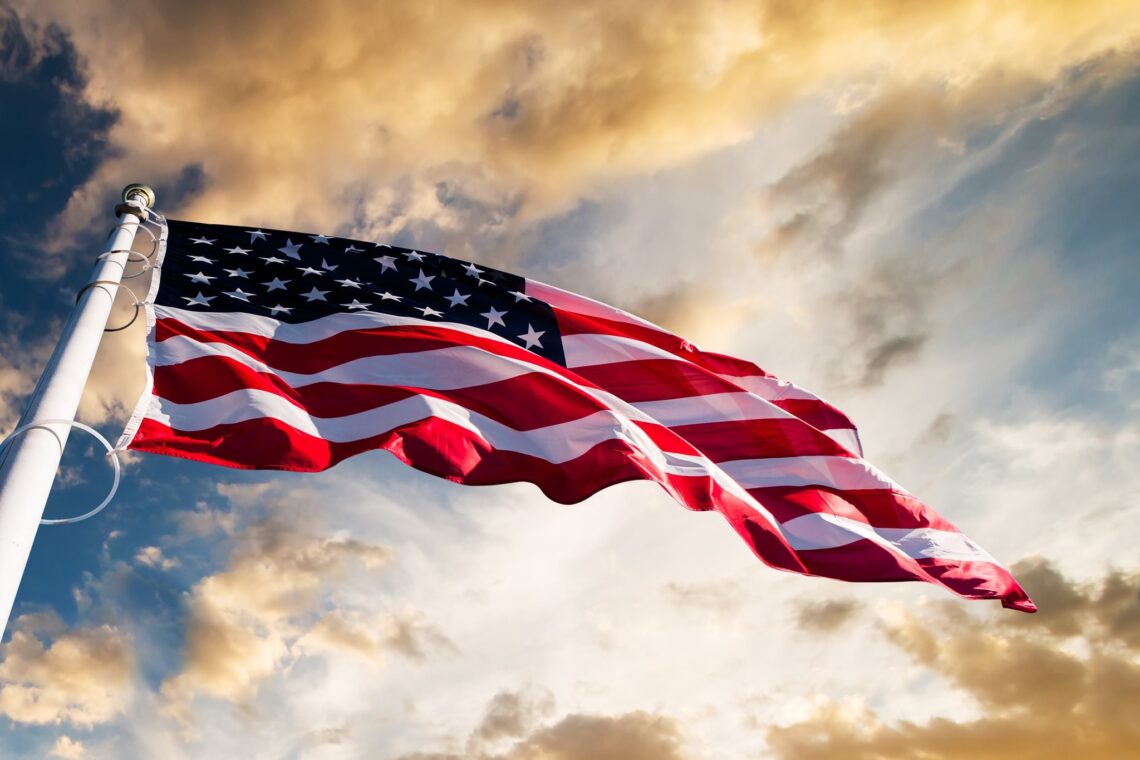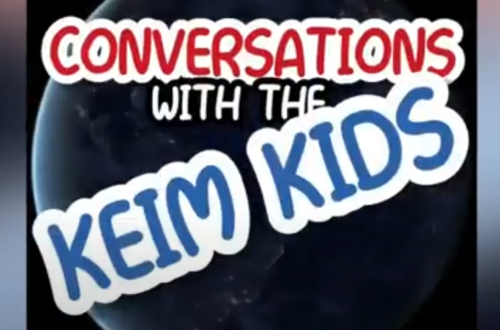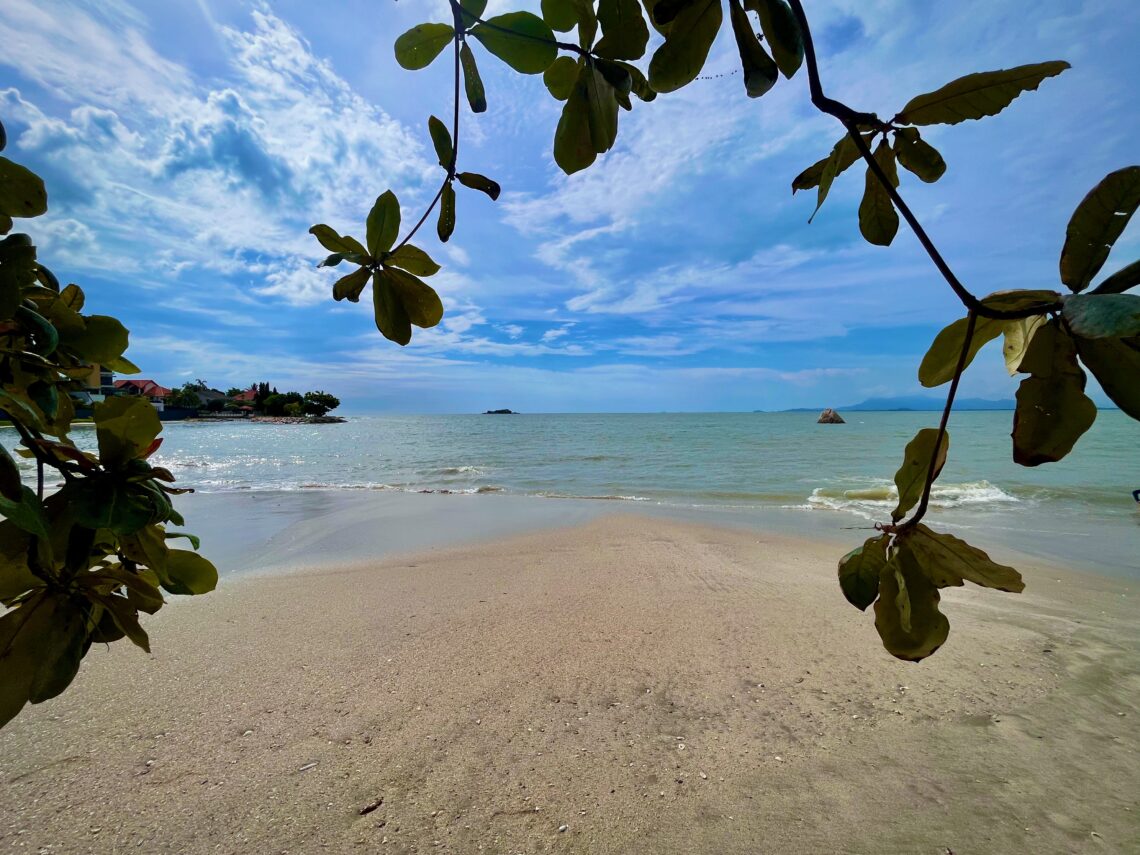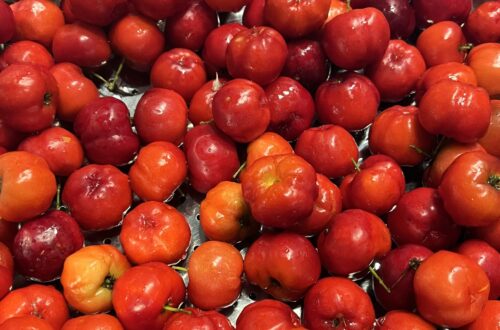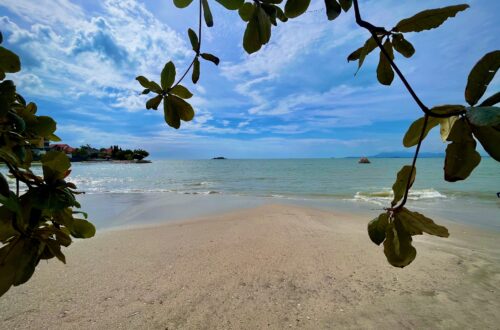-
The Inconvenient Truth about Child Sex Trafficking
Since working with our investigations team, my view and understanding of human trafficking, especially child trafficking, has expanded to a degree I wasn’t prepared for. Imagine if you will, your nose pressed up against a canvas painting. For all you know, everything you see is all the picture is. It would be easy to think you know the entire picture from that close-up perspective, but it isn’t until you step away from the canvas that you see just how diverse the painting actually is.
If you’re like me, the topic of “child trafficking” can easily be understood from that analogy. Everything I knew about child sexual exploitation I learned from the media, Hollywood, and scandals of a notorious pedophilic billionaire found hanging in a prison cell. God used those stories to get me off my couch and into the arena to combat this horrific scourge, but what I’ve come to discover is that what I “thought” I knew about child trafficking and what I have “learned” firsthand, are not just different, but categorically transformative.
I’ve never met a child who had been trafficked by a Russian Organized Crime syndicate. I’ve never met a child who had been exploited by an A-List celebrity. I don’t know any children who were on private islands or exclusive parties or private jets. I don’t know of a kidnapped teenage girl on vacation, whose father has a very particular set of skills acquired over a very long career. To be clear, there ARE children who are victims of these circumstances, and their stories are no more or less valid, important, or impactful than any other child victim. What I have encountered is far less “sensational” than the stories that get media attention and Hollywood scripts yet is vastly more common and much more difficult to combat.
I know of children sold by their parents or relatives. I know kids abandoned and taken under the wing of a seemingly benevolent adult who now provides shelter, clothing and food, only then to exploit their innocence later. I’ve heard stories of kids who willingly surrender themselves to pimps as an act to make money to help provide for their impoverished and often disabled family. I’ve seen traffickers under the age of 25 exploiting their underage “friends” for a share of the profit. While there are sophisticated and transnational criminal rings involved in trafficking children, my experience shows the problem is vastly more widespread and disconnected. Arresting one trafficker has little to no bearing on the operation of another.
We regularly see kids willingly and actively posting seductive photos of themselves online, complete with their weight, bust, and waist sizes to secure employment as cocktail waitresses, servers, hosts, and more. Their uploads are in response to active posts from legitimate businesses looking for extra help on busy weekends, special events, or for high-profile guests. The business’ solicitation itself might be benign, but the hundreds of folks surveying those posts with far less than positive intent are now in possession of a name, a face, social media information, and clear vulnerabilities.
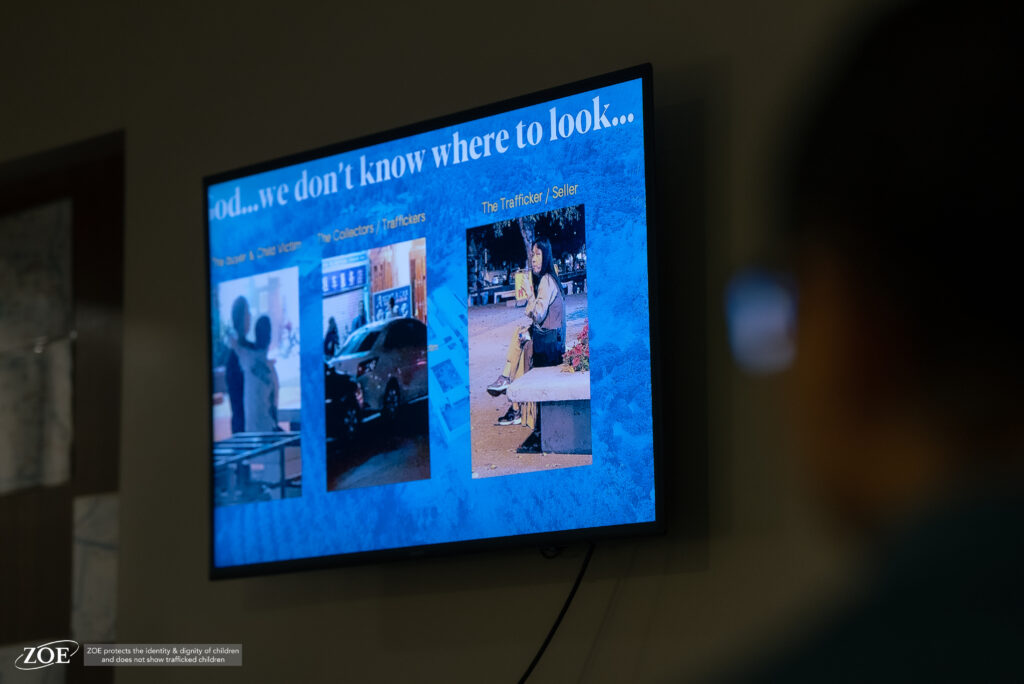
Unlike the portrayals I’d seen on the big screen, of the cases I’ve worked on, most traffickers have been female. Nearly all of them are barely adults themselves. The narrative I believed involved prowling men ripping children from sidewalks on their walk to school, not women luring children away because of their innocence. But women initially appear less threatening and can easily seduce, lure, convince, or manipulate a vulnerable child without ever threatening violence.
Additionally, if you’re like me, our hearts break at the thought of little girls being exploited for sadistic pleasure, but we’re ignorant of the massive market for boys as well. No matter the fetish, there is an eager and evil entrepreneur ready to supply the demand and make a buck. Don’t deceive yourselves, trafficking is business, and it is BIG business. Drugs can only be sold one time, but a child can be sold repeatedly. It is a pure market economy: where there is a demand, someone is eager to offer the supply.
Children are commodities, and many of them are held against their will in dark rooms, with little food and no access to the outside world. Yet, of the rescued children I’ve encountered, many are victims of being deceived into becoming willing participants. Their traffickers/pimps dress them well, share a greater portion of the “profit,” and allow the children to come and go with more freedom. The children make more money than they could elsewhere, so they come back again and again “willing” to endure the abuse. They envision themselves more as employees rather than commodities or hostages. That mindset, coupled with the nature of their “business arrangement” make criminal proceedings much more challenging. “Are they really trafficked if they are free to come and go and are paid for their services?” Absolutely YES! But as long as police, prosecutors, judges, and the public’s narrow understanding of trafficking is shaped by the narrative portrayed on the big and small screens, the majority of child victims fall below the radar and their nightmarish exploitation continues.
The industry is incredibly lucrative, and if the public believes trafficking is defined by a narrow parameter, the industry often operates unchecked. Like the vilest version of the arcade game “Whack-A-Mole,” when one bar, massage parlor, restaurant, hotel, or other business is raided and closed, operations pick back up shortly after without missing a beat. The exploitation isn’t just happening in the darkest recesses of the internet or remote alleys in mysterious cities. It’s everywhere and not even very well hidden! The demand is unmatched.
Like most “good” people, it’s hard to fathom how anyone could dream of sexually exploiting a child. But the reality is, it’s a slow fade. I know of no one who woke up one day and decided to rape a child. I’m sure that’s happened, but it absolutely cannot be the norm. The fade all begins with pornography. We’re all attracted to the salacious, the off-color, the taboo. It has a draw, a thrill, a risk. Porn provides all of that and more. Like barbs on a fishhook, once set it is damn near impossible to get free. Porn allows the viewer the rush without the risk. But it never fully satisfies. Before long, consumers need more salacious, taboo, and beyond-the-pale content, not suitable for civilized company. Healthy friendships that should build up, edify, and strengthen one’s character are traded for alluring and arousing images for cheap fixes and thrills.
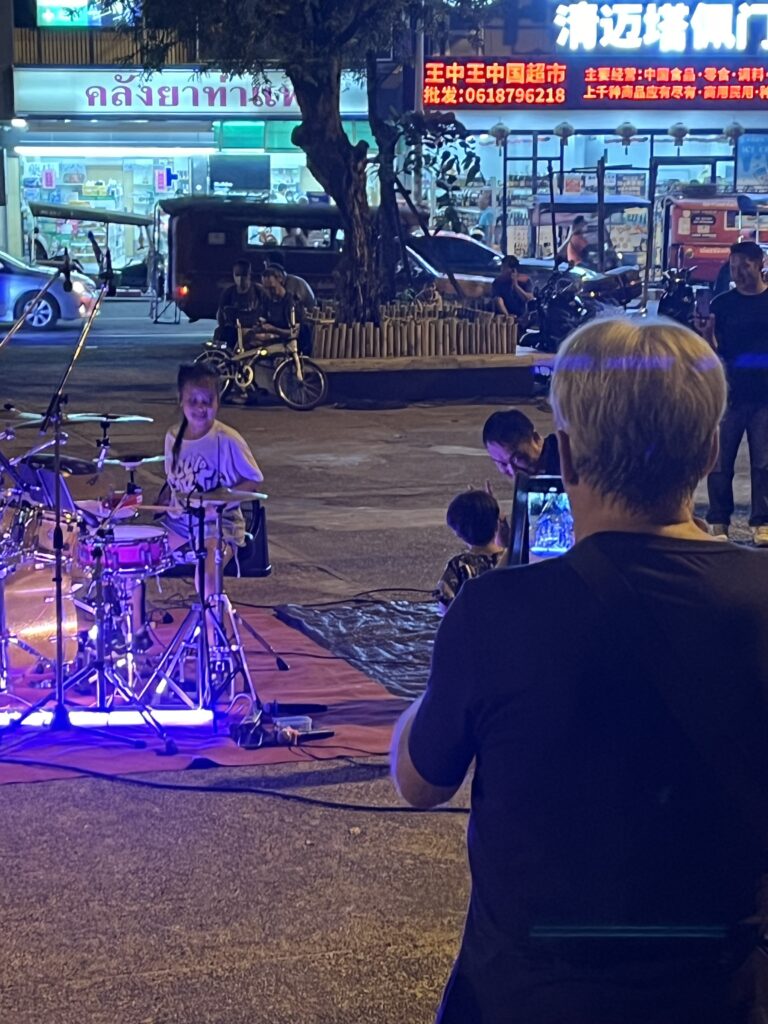
Like any other drug, once the initial buzz wears off, the user returns to their “normal” life which is often pitted with tragedy, hardship, depression, loneliness, and isolation. They need another fix to disguise the pain, and this time a larger dose is needed. Before long, they’re on to more dangerous and lethal substances. Porn is EXACTLY the same, but instead of the user hurting their own bodies with substance, the victim is the person in the image, often threatened, beaten, and/or drugged against their will to make them a willing participant. The slope is greased by the thrill of looking at “barely legal” individuals (PAUSE: let’s be honest, do we really believe the pornographers are diligent on checking IDs to ensure the person is in fact an adult?). Downward they go and next there’s the rush of viewing, sharing, selling, and producing the truly illegal content of Child Sexual Assault Material (CSAM). The only rush left is experiencing the child from the screen in the present and physical form.
Make no mistake, the viewing of porn is not innocent, benign, victimless, or harmless. Porn is the purest gateway drug that fuels the sexual trafficking enterprise. Again, it’s a business. The reason there is a supply of children to sexually abuse is because there is a tremendous demand for them. That demand is created by pornography, and whether the pornographer also participates in trafficking or not isn’t the point. The hook has been set, and others are ready to land the fish. The greatest dent society could make in the trafficking arena would be to stem the demand for pornography. It truly is that simple and requires no training, no money, no formal education, calling, or special gifting. Stop viewing, sharing, and purchasing pornography. Until then, kids are going to continue being prey for predators.
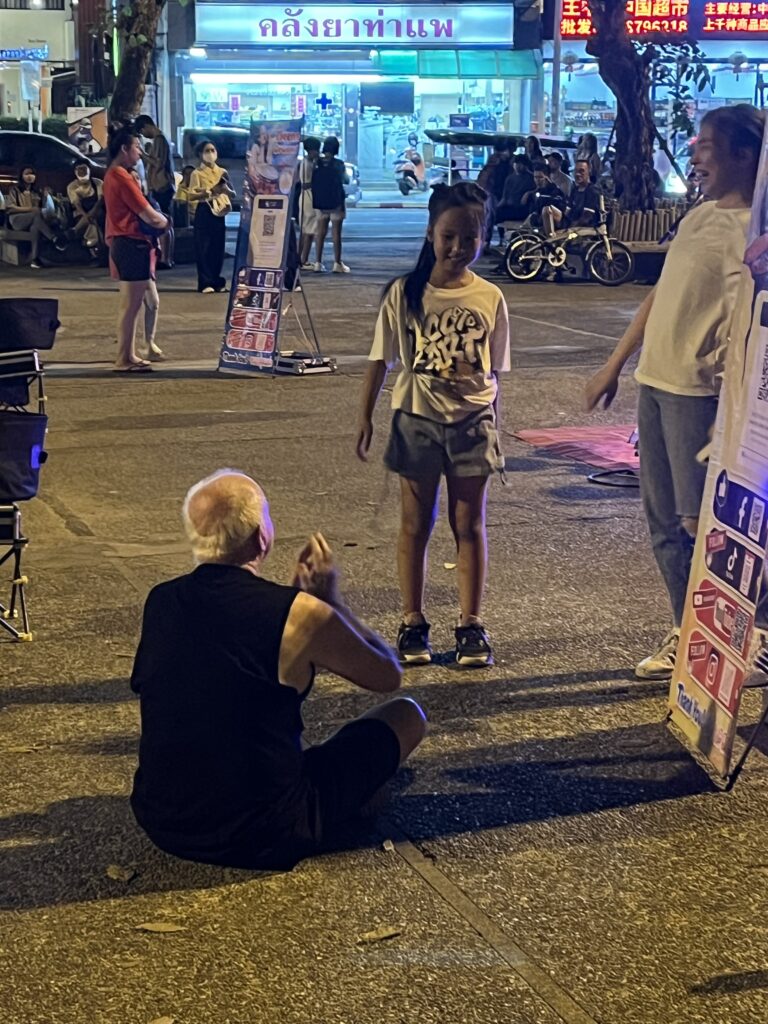
At this moment, we are aware of a known exploiter of children. He was arrested in Europe and served prison time for possession of over 80,000 images of child pornography. After serving his time, he moved to Thailand and has been seen near children: always with his favorite camera slung around his neck.
Stay tuned and I’ll next fill you in on the 8 types of trafficking, showing just how nebulous and shape shifting this nightmare truly is.
-
Getting Nudged When I Can’t Be Trusted With The Truth
There’s a memorable scene in Avengers: Infinity War where Dr. Strange is floating in the air, a green ribbon of light swirling about him while his head is shifting about frantically in a trance like state. After several moments, the trance ends and Dr. Strange drops back to the ground and reenters reality among a group of other would be heroes awaiting an explanation.
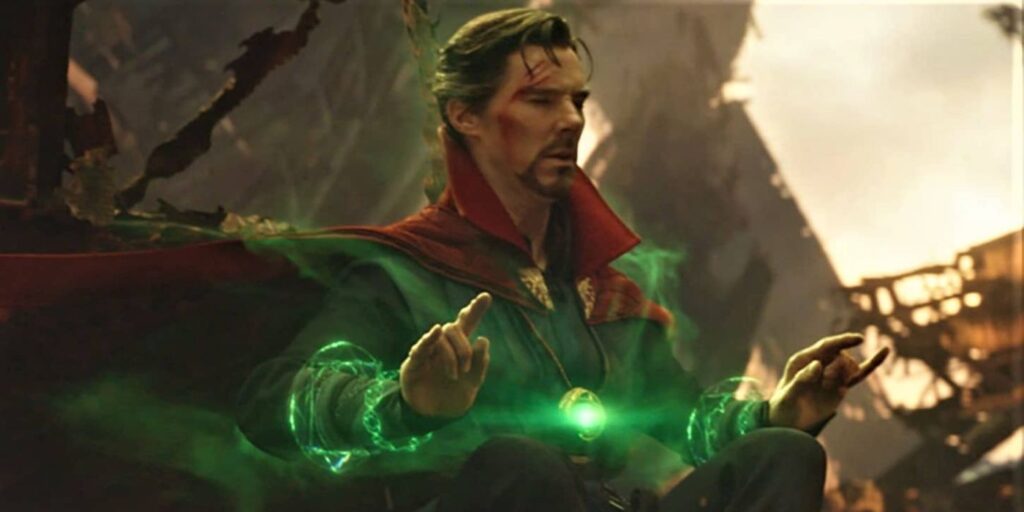
- Dr. Strange : I went forward in time… to view alternate futures. To see all the possible outcomes of the coming conflict.
- Peter Quill : How many did you see?
- Dr. Strange : Fourteen million six hundred and five.
- Tony Stark : How many did we win?
- Dr. Strange : …One.
Against all human logic, reasoning, and wisdom, Dr. Strange does arguably the most asinine action, giving up the very thing staving off humanity’s destruction. Dr. Strange willingly gives the Time Stone to the ultimate antagonist Thanos, ensuring the Avengers defeat.
The movie ends with Thanos having all the infinity stones and with a single snap of his fingers, half of the world population turns to dust, including Dr. Strange. The audience, as well as all the remaining Avengers, are left with a profound feeling of loss, failure, and tragedy.

Fast forward to the next movie, Avengers: Endgame, all the way to the end. A moment comes when Dr. Strange looks at Tony Stark in the eye and holds up one finger, flashing back to the scene in the previous movie that out of over 14 million possibilities, there is only one way to win. It’s in that moment that the audience, as well as Tony Stark, realizes that Dr. Strange’s seeming betrayal was actually a step on the singular path for global victory. And the bigger point, is that if Dr. Strange had told Tony Stark about the only option to win, Tony would have never followed through. Tony could not be trusted with the information at the time when he thought he needed it most.
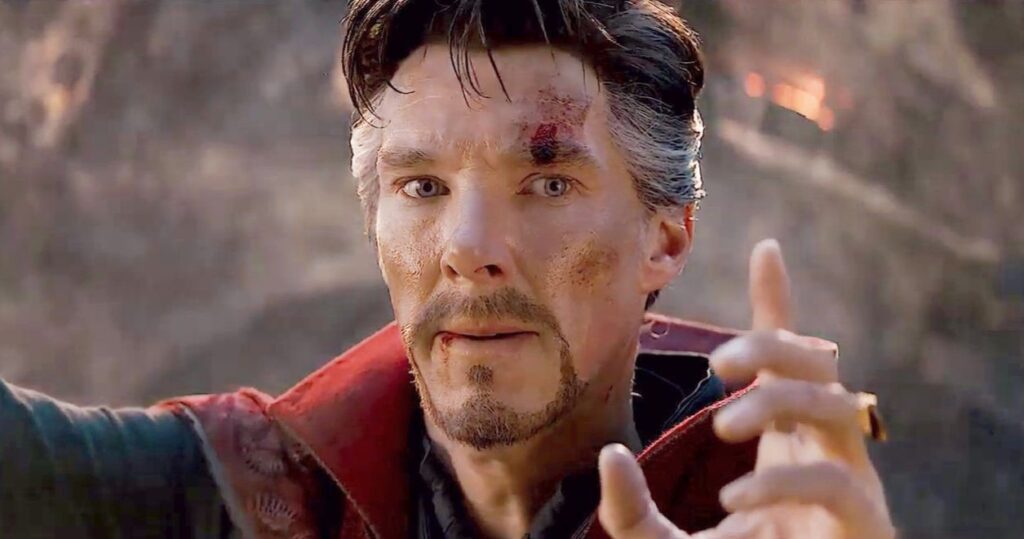
While I’ve never been involved in an intergalactic, all-of-humanity-at-risk conflict (yet), my mind is drawn to a situation many years ago where I thought I was smart enough, mature enough, and wise enough to be told the solution, but in reality I wasn’t.
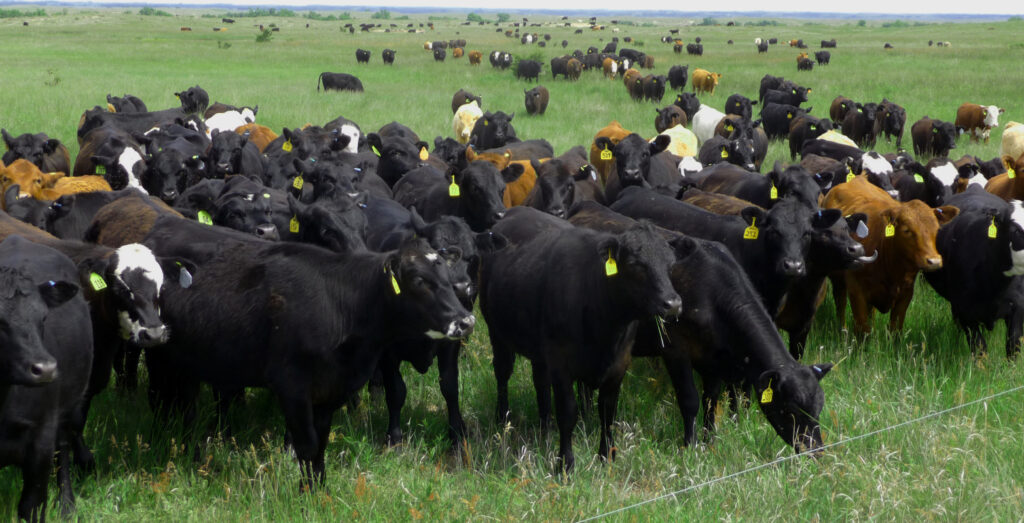
I’m not a rancher. Neither is my dad, though he owns one and loves it immensely. One of his favorite joys is building fence while walking over rolling hills of his Nebraska Sandhills prairie. One afternoon, I was building a stretch of fence with my father that was maybe 1/2 a mile long or more. A fence must be straight, so getting all the posts in alignment is critical. Yet, due to the rolling terrain, we were unable to see from one end post to the other. With two hills between the end posts, my father and I each on a hill, we could see both the other person and the end post behind them. Both of us could align 3 of the 4 posts needed to make a straight line.
Think of a crooked line with four points; two end points and two spaced somewhere between. The points in the middle were my father and I. I knew where I was, could see him, and the post behind him. Likewise, he obviously knew where he was, could see me, and the other end post behind me. The strategy was for us to help line up the other person so that all four points were in perfect alignment. Dad had this ridiculous method, complete with silly hand and arm gestures to direct me where I was supposed to go, which happened to be west. But he was wrong, and I knew it. I made sure he knew it and I argued with him. Without engaging in my muted tantrum, he simply kept directing me west. I was hot under my collar. I had devised a little method (without him looking) that clearly showed we needed to be going east. But he kept moving me west. West and west I walked. Further and further away from where I knew I was supposed to be. Then all of a sudden, we stopped. I looked over my post, over him, and he was exactly in line with the end post. He looked over his, over mine, and I was exactly in line with the end post behind me. We had made a perfectly straight line, and yet, I was about 50 yards west of where my supposedly perfect, but clearly incorrect line was.
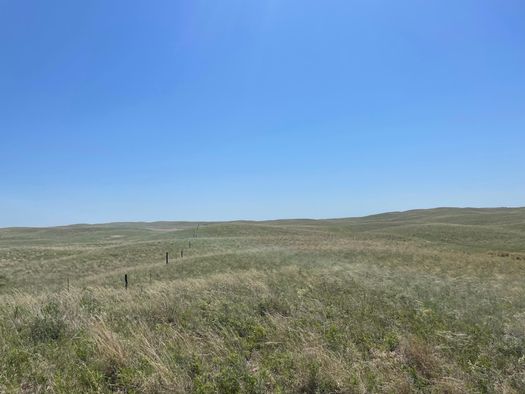
I don’t know why that moment on a hot Nebraska afternoon has been seared into my memory. But I’ve reflected on it often. The take away I keep coming back to was that dad never once explained his method to me. He just kept nudging me in the direction I was supposed to go. I used to get irritated that Dad didn’t try to explain his reasoning, because gosh darn-it, I’m like smart and stuff.
The reality was, I wouldn’t have listened. I turned off my ears to actually listen because I was too convinced he didn’t know what he was doing. If you’ve followed any of the Avenger’s movies you know Tony Stark wasn’t about to let anyone tell him what to do. He was the smartest guy in every room he entered. And while his character was based on his extreme brilliance, the truth was, Dr. Strange knew Tony couldn’t be trusted with the truth.
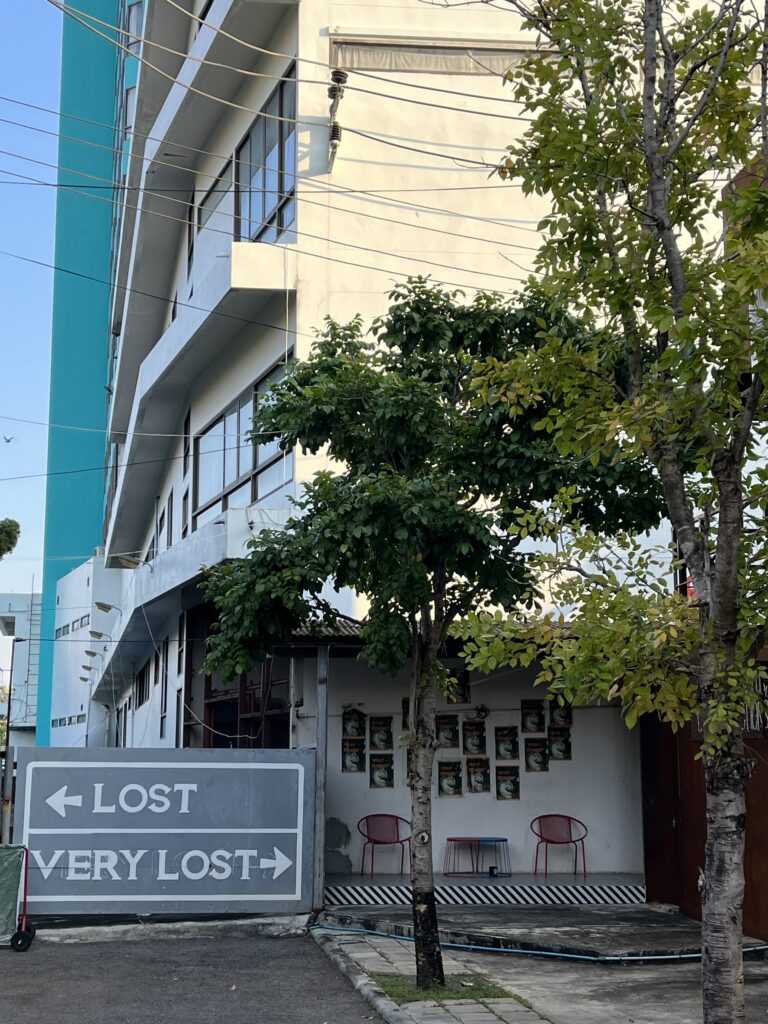
My family is in a season of trusting God in immeasurable ways. Somedays it feels as if we have no direction and are left to figure it all out on our own. There is no doubt God can make everything easier for us by simply wiggling his pinky toe, yet He apparently hasn’t. The point is not God’s ability for solving the problem, it is His reason for not doing so. He is not punishing us. He is not distant. But at the moment, He is silent, while gently nudging us in a direction often feeling counter intuitive from my standpoint.
I’m slowly realizing that, as smart as I am, and as strong as I think my faith is, the uncomfortable reality is that if I was really as smart, wise, or faithful as my mind believes, God would’ve trusted me with the reasons for his apparent inaction. Since He hasn’t shared his wisdom, the problem is my lack of faith and responsibility, not His withholding action or explanation.
God is so much more than some guy with green light and the ability to see the potential future. God is both in the future and ever present with my family now. Nothing is beyond His control, power, or dominion. God’s ways are not my ways, but His ways are always good, right, and purposeful. While I find myself in the season of wondering why God isn’t explaining his reasoning, I guess the best course of action is to just watch, take the small steps in the direction I’ve been given, and trust the paths will be made straight.
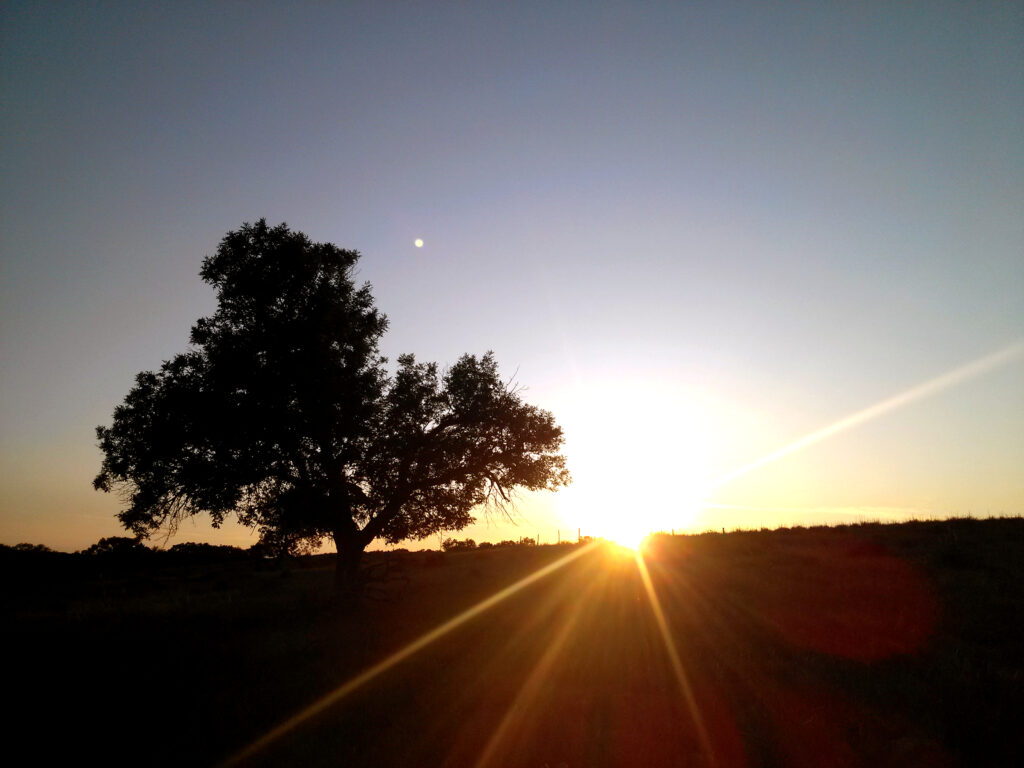
“For my thoughts are not your thoughts, neither are your ways my ways, says the LORD. For as the heavens are higher than the earth, so are my ways higher than your ways, and my thoughts than your thoughts.” Isaiah 55:8-9
-
How to Spot a Monster
I’ve often wondered with regards to human trafficking, “How do you measure the effectiveness of prevention?” It seems as if there is no metric to know if efforts on the front end have prevented the feared atrocity from occurring in the first place.
On a prevention outreach near the Myanmar border a few months ago, I witnessed first-hand encouraging evidence of the ZOE Prevention Team’s effectiveness at stopping a horror before it begun. In front of an audience nearing a thousand refugee children, The Prevention Team performed a powerful drama. Absent any dialogue, the play showcased how children are often lured into human trafficking and the many subsequent forms of exploitation.

The story began with three happy siblings enjoying their family when tragedy befell their father, now no longer able to care for his children. On stage arrived a well-dressed couple, clearly appearing at a higher socio-economic level than both the pretend children on stage, as well as the actual children in the crowd. The audience vocally cheered at the arrival of these well-to-do folks on stage who appeared as reputable heroes to the tragedy-stricken siblings. The siblings left with the well-dressed duo, in hopes of a future filled with opportunity.

Unbeknownst to the siblings, the couple were paid for introducing the crestfallen kids to an elegant woman in a beautiful, bright-red dress. With make-up, high heels, bundles of cash, and poise, she entered the stage to roaring applause and cheers from the audience. Her presence, demeanor, and attire conveyed power, wealth, and sophistication; attributes seemingly unattainable to the children in the crowd. As the story unfolded, the woman in the red dress was revealed to be not the hero the audience expected, but rather a beautifully dressed monster in disguise. She sold one of the sisters into sexual slavery. The brother was forced into hard labor. The other sister had her eye’s removed for black-market organ sales, was beaten, and forced to beg for money on the street.

It was an emotionally powerful story. While it is a fictional depiction of the real-life terrors experienced in human trafficking, none of it was exaggerated. As powerful as the drama was for me, the most memorable part was the shift in reaction from the audience. The children in the crowd were incredibly poor. Their lives have been devastated by war, poverty, brokenness, and difficulty. Tragically, pain and hardship are much of all they know. Seeing the classy, well dressed, and sophisticated actors on stage garnered an immediate reaction of ovation and approval. But as the story unfolded, the true character and motivations of those face-value heroes was unveiled and the audience’s adulations diminished. Their former applause turned to silence. Their cheers switched to gasps. Children looked away and others covered their mouths in astonishment. The apparent heroes were the actual villains. I was able to watch these children recognize there was more than meets the eye.

The truth remains, it is incredibly difficult to objectively measure the effectiveness of prevention. But if what I witnessed was any indication, those school children are now far more aware of the real-life predators actively looking for them, seeking to cause harm and destruction, desiring to take advantage of their innocence.

The rest of the outreach was filled with fun training, resources and techniques to help keep those kids safe. As the adage goes, an ounce of prevention is worth more than a pound of cure.

Helping these kids navigate life with the cards they’ve been dealt is worth all our efforts and attention, while simultaneously praying they’re never in a position requiring rescue.

-
Simple Joys, Learning from the Birds.
We have an Acerola Cherry Tree. We didn’t plant it. We didn’t know it produced fruit. When it did, we had no idea what fruit it was. Thanks be to google, we now know our home to be equipped with an Acerola Cherry Tree.
They aren’t like any other cherry I’ve ever tasted. Somewhere between the flavor of a tart peach and maybe a crabapple crossed with a grape, yet with the texture of a soft plum, shrouding three triangular seeds, and encased in a vibrant red color, these little delights are delicious to snack on. I often grab a handful whenever I see their spectacular reds contrasting against the even toned green leaves surrounding them like ornaments on a decorated Christmas tree.
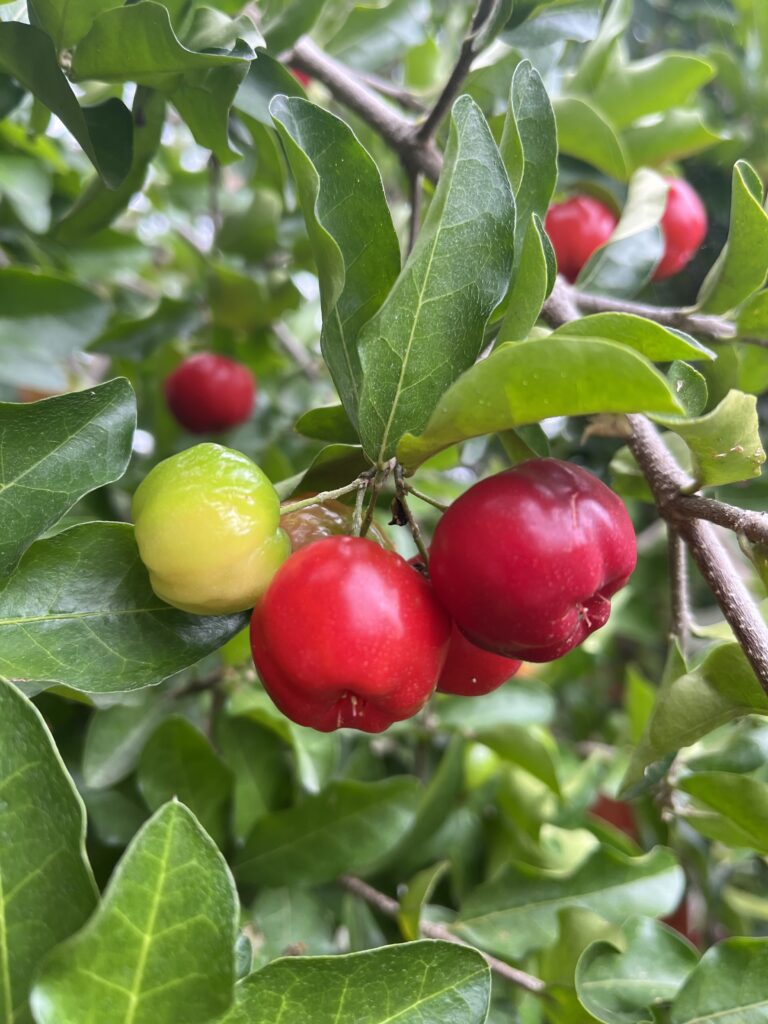
I dove into the depths of the interwebs, trying to identify this mysterious fruit tree in our front yard. Not quite a cherry, but also not a crab apple, how does one begin to search when the identity is difficult to describe? But google didn’t let me down. I learned some impressive facts about these little beauties. The Acerola Cherry is PACKED with Vitamin C. One cup of these sweet nuggets has the same amount of Vitamin C as THIRTY cups of oranges. Take that Florida! They also have a significant amount of antioxidants to help ward off….er….oxidants.
The little factoid that I didn’t expect was their shelf life. They last maybe two or three days being the reason you probably won’t ever see them in a store. A couple days. That’s it. I thought it was the birds stealing my snacks, but the reality is, those cherries just need to be eaten when you see them. You mustn’t wait or you’ll miss out. Maybe the birds know that too as I’ve seen plenty of red in the morning and not a cherry to be found in the afternoon. While that seems depressing, the reality is, this tree continually produces more and more cherries. I’ve picked the tree clean one day and harvested a heaping bowlful the next afternoon.
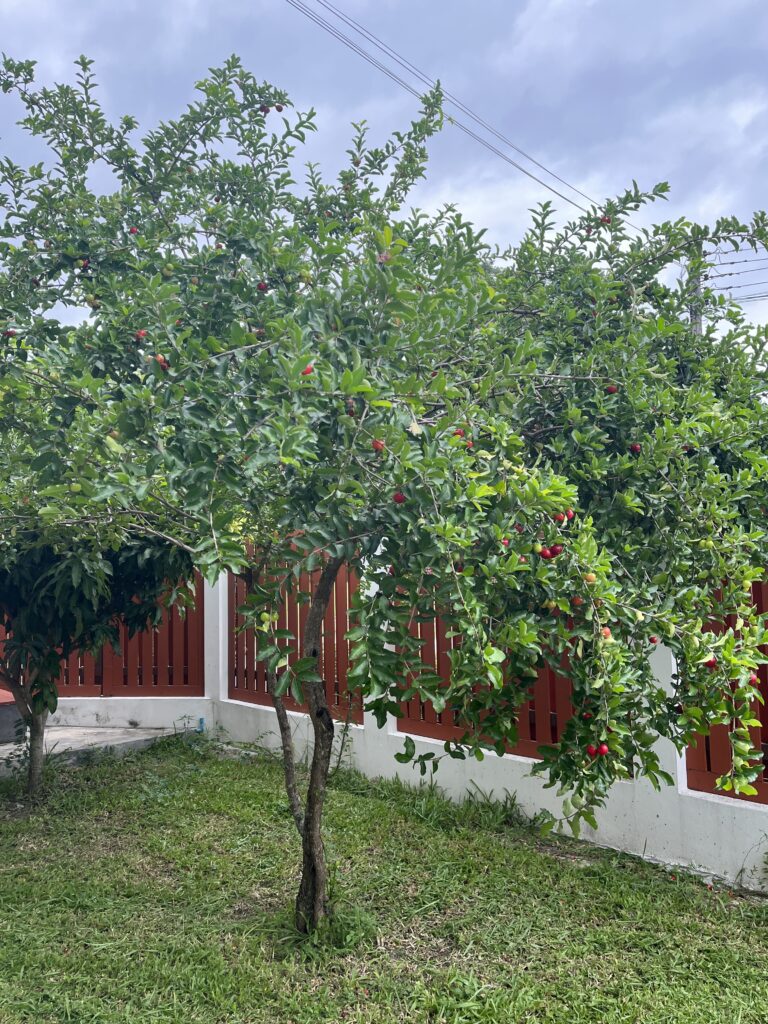
Having grown up on the heart of farm and ranch country, I’m all too familiar with the cycle of planting, tending, harvesting and canning. Harvest comes but once a year. A late frost, a stray hail storm, heavy rains, droughts, and the like, all drastically impact that one time of year where all hands are on deck to collect and store the bounty so we can enjoy it until next year. A continually producing tree seems more reminiscent of the Garden of Eden than anything I’m familiar with from my past.
When the Israelites meandered through the desert, the Good Lord provided daily manna (keyword: daily). They collected in the morning, enjoyed it through the afternoon and started the process again the following day. Some Israelites didn’t like the idea of a daily harvest. Apparently it’s too much work. Being lazy-minded yet disguised as prudence, some tried to store several days worth only to discover the manna didn’t keep. Maggots and worms rotted the daily bread, requiring the chosen folks to make a choice every day: harvest and eat, or sleep in and starve.
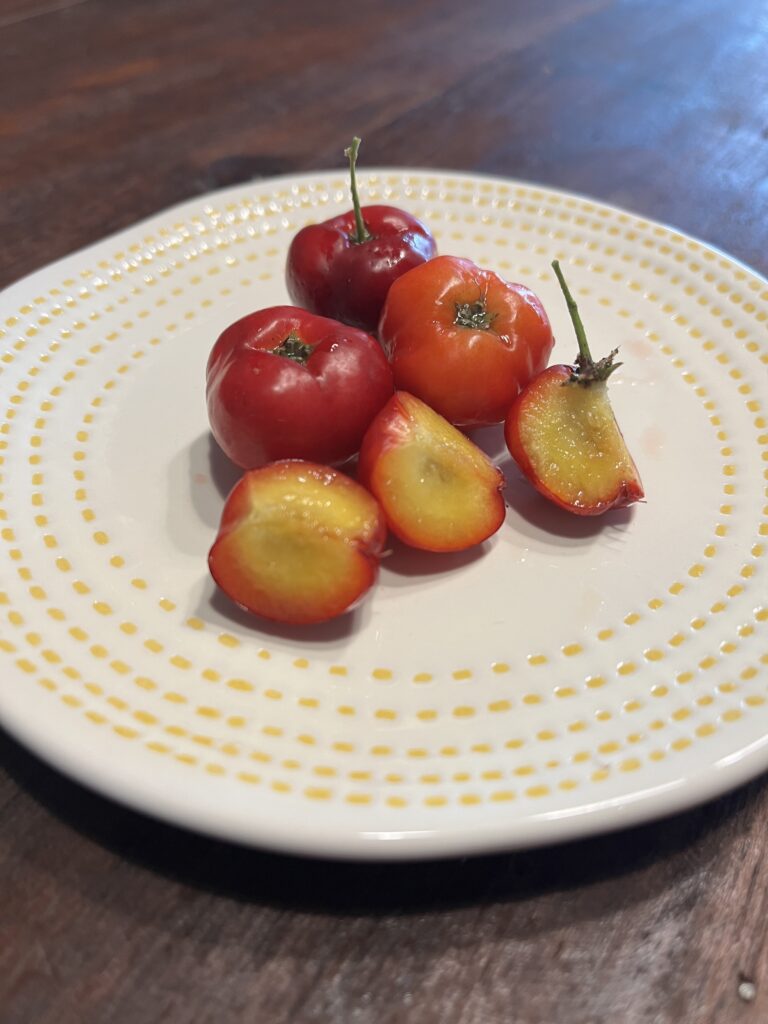
The parallels between mysterious manna and my mysterious cherry-like fruit are readily at hand. The Lord provides daily. And like those “prudent” Israelites, I can dupe myself into thinking I can get my fill of Jesus in bountiful harvests to last me through the week, month, or year. The reality, however, is Jesus is my DAILY bread (daily cherries). His unique flavor, subtle yet contrasting beauty, and necessary nutrition are experienced daily. As good as flavor can be, it is a fleeting experience. Once it’s gone, it’s gone. To experience the nuance, depth, and specific characteristics of any flavor, one must consume the food again to relish in the experience.
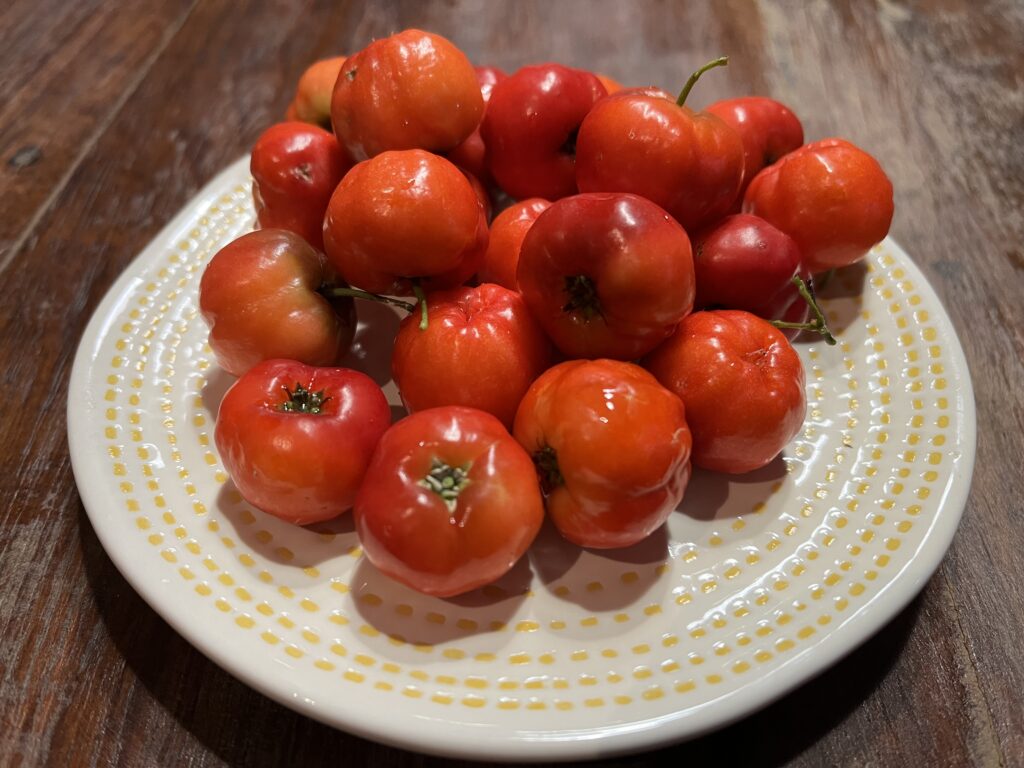
Jesus is all around me, inviting me to partake in his simple joys. Those subtle flavors of His goodness, His mercy, His grace, joy, love, peace, and tenderness are best experienced daily rather than periods of abundance and famine.
I’m okay sharing with the birds. God feeds them daily too. Why shouldn’t we both eat from a life giving tree? Maybe my winged friends know more about daily bread than I do.
-
Want to ELIMINATE child trafficking? Pray for Saul.
I’ve been reading through the book of Acts as if I’ve never encountered those stories before. With that frame of mind, I’ve encountered these familiar narratives from unfamiliar angles. I am discovering ideas and experiencing insights slightly different than I remember. The Sunday school felt board teachings are being eroded away and replaced by a harsher reality. Maybe it’s my age. Maybe it is my station in life as a missionary. Maybe it’s God deepening my faith. The reason pales in comparison to my newfound understanding.
Before the name change, Saul was particularly evil. In my previous readings of Acts, I rushed past the accounts of Saul hunting down new believers, ripping them from their homes, trumping up charges against them, locking them in prison, and stoning people, all because I knew Saul was later the Apostle Paul and Paul blends better with my sensibilities. Saul was not just a passionately religious jerk. He was a militant terrorist of the early church.
Acts chapter 9 starts off with a doozy, “Meanwhile, Saul was still breathing out murderous threats against the Lord’s disciples. He went to the high priest and ask him for letters to the synagogues in Damascus, so that if he found any who belonged to the Way, whether men or women, he might take them as prisoners to Jerusalem.” If I stop right there, and know nothing more about Saul’s story, I’d label him a tyrant. Just imagine “breathing murderous threats” being used to describe someone’s demeanor. Chapter 8, verse 3, says, “But Saul began to destroy the church. Going from house to house, he dragged off men and women and put them in prison.” This man is a church sponsored vigilante. He approved of the stoning of Stephen by personally overseeing his execution. He’s the guy I’d cross the street to avoid walking past, afraid to accidentally make eye contact with. If I was in my car, I’d lock my doors and pretend to be distracted for fear of drawing his ire.
Knowing Saul eventually became the celebrated Apostle Paul, my tendency is to rush past the discomfort of knowing just how terrible he was; or worse, dismiss the severity of his actions. I say “worse” because, if I’m being honest, what I’m really saying is that if Saul was really as bad as the writer Luke described, God wouldn’t have used Saul. In essence, I don’t trust God’s judgment. Either God didn’t know how bad Saul was or Saul wasn’t as bad as it seems. But there’s a third option. One that really grates on my preconceived notions and requires I allow myself the horror of admitting that while Saul was the evil and murderous marauder, God chose him. I’m not alone in thinking this. Ananias was clearly thinking the same thing.
“But the Lord said to Ananias, ‘Go! This man (Saul) is my chosen instrument to carry my name before the Gentiles and their kings and before the people of Israel.’” – Acts 9:15 (emphasis added). Ananias had just been instructed by God to speak to Saul directly and pray for him. Ananias’ response is certainly the one I relate to, “Lord, I have heard many reports about this man and all the harm he has done to your saints in Jerusalem. And he has come here with authority from the chief priests to arrest all who call on your name.” – Acts 9:13-14 (emphasis added). Ananias is saying the quiet part out loud. “Um, hey God. Do you know about this Saul guy? He’s like a really bad dude and does mean things in your name. Not certain you’re aware he’s claiming your name for with his actions. And you’re not a bad God, so, I don’t think you meant that I should pray for the bad guy, because you don’t do those crazy things. Just thought I’d help you understand the situation down here because it seems like you aren’t thinking clearly. Hope that helps. Now, that we have that straightened out, what do you really want me to do?” If I were to be radically honest, it’s hard for me to believe God would choose to use someone as malicious as Saul for His glorious purpose.
What does Saul have to do with the terror of human trafficking? Why am I taking the time to write this post and hash out my thoughts? Because Saul isn’t some far off guy we have no association with. He’s not just a character in a historical and religious text. Saul is alive today and his atrocities are terrifying us just like first century Saul’s actions did a couple thousand years ago. Biblical Saul was a known man, with a known face. Today’s Saul is someone we’ve never met, yet the world is waking up to see his actions. Americans are waking up to the horrors the “Sauls” of today have with their power, influence, and reach, as well as the depth of their depravity. The size and nebulous nature of our modern era Saul leaves us with a feeling of helplessness as to do anything about him.
Movies like The Sound of Freedom, among other documentaries, reports, articles, discussions, court cases, and interviews are introducing people to the present day Saul’s of this world. I’m not referring to the people who are purchasing kids, I referring to the kingpins at the top of the stomach churning power pyramid, who profit from the sale of children for sadistic pleasure. While the biblical Saul was persecuting the new church because of self-imposed moral superiority to please God; the reality was he was an offense to the God he was trying to please. On the road to Tarsus, Jesus confronts Saul and says “I am Jesus, whom you are persecuting.” Even though there is no account of Saul attacking Jesus personally, any persecution of those whom Jesus loved is an attack on Jesus himself. Time and time again, Jesus expressed his love for children and instructed people to care for them. Ergo, harming children is attacking Jesus. When Saul snatched Christian men and women from their homes to stone them to death, that was an attack on Jesus. Yet, in spite of that attack, Jesus chose to step in and confront Saul, but not only to stop him, but to use him. This is what I get wrong. If I were Jesus, I would have swiftly ended Saul’s evil reign. But Jesus claimed Saul for himself, renamed him Paul, and the entire world has been blessed through Saul’s conversion.
My prayer has been for the Sauls of our day: the ones who instigate and profit from child trafficking on a global scale. I want to see child trafficking in all its forms cease immediately, and I’m committed to the cause. But my timing is not God’s timing. My ways are not His ways. Those are GOOD things. Thank God I’m not God. As I pray for the Sauls at the top of the heinous power echelon to encounter the course-correcting, name-changing Jesus, I will daily go to work helping to rescue and restore children already caught in their evil snares. I am convinced that the work we and others around the globe employ to combat the scourge of trafficking is a great and noble effort. Children are being rescued and offenders are being arrested and prosecuted. There is no wasted time, opportunity, or effort to rescue children from the talons of dark and evil villains. However, if we think these efforts will solve the problem, we’re bailing a sinking boat with dixie cups. We need holes plugged and the only way that can happen is for Saul to meet Jesus and have his name changed. God only knows what can happen then.
This is the paradox we live in. Want to stop child trafficking once and for all? Pray for Saul.
*Do you know your name? Have you had your own “on the road to Tarsus” moment where Jesus called out your true identity? I’ve been diving deep into this topic and first wrote about it here. Walking in the way God designed me and knowing my name has transformed my faith and want to see others experience the joy I’ve discovered.*
-
A Little Blue Book With Enormous Privilege
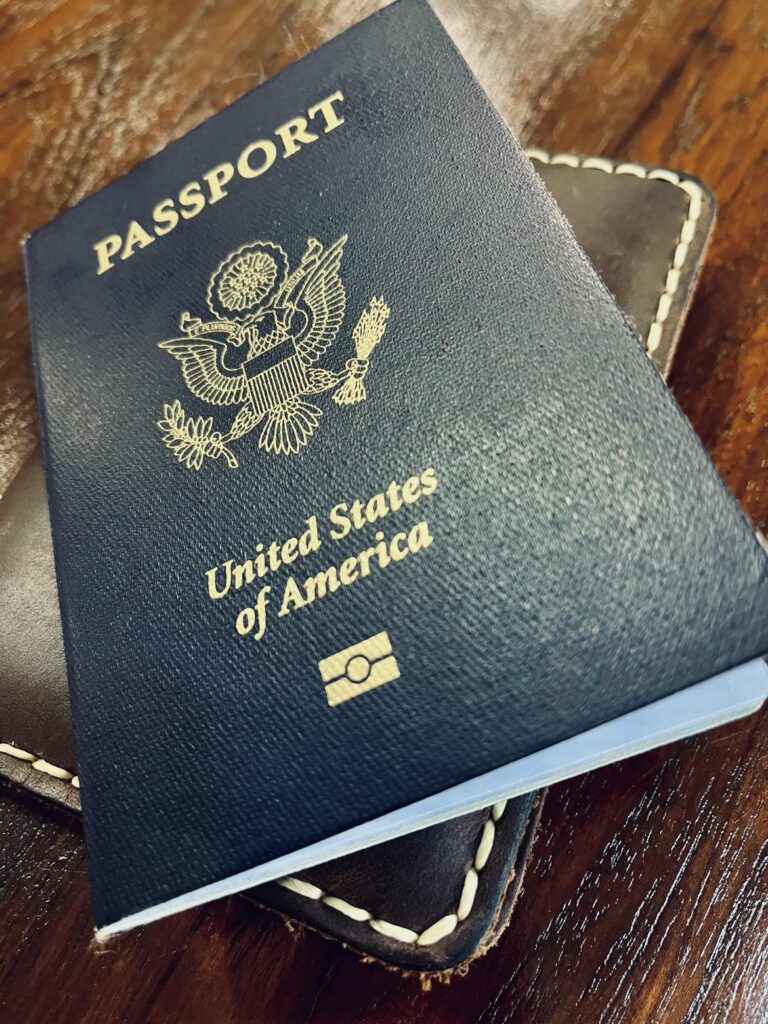
The Passport of the United States of America is in many ways, unremarkable. Sure, it has all sorts of security attributes similar to the American financial currency in an effort to combat counterfeits, but in reality, its nothing more than three and a half by five inches in size, several blank pages, some inspirational and patriotic quotes, personal identifying information, a picture or two and a stiff cover. It isn’t bullet proof. It isn’t fireproof. It isn’t even waterproof. It won’t save your life in the event of a water landing or keep you from unwelcome calls about your vehicles’ extended warranty. It truly is just a little blue book weighing no more than a few ounces. Yet in spite of its physical weight, the weight of privilege that book carries is beyond measure.
For those of us born in the US of A, we typically have very little interaction with our federal government. No matter how much we complain about their action or inaction, we take for granted the significance of being an American by birthright. If any natural born citizen stays within the physical borders of the Land of the Free, there is no reason to need the little blue book of privilege, therefore there are likely millions of Americans who don’t even have one. It is only when leaving the fruited plains and entering a foreign land where that book that can’t be of more significance and value.
Posted clearly on the first page of every US passport under the Great Seal of the United States are the following words:
“The Secretary of State of the United States of America hereby requests all whom it may concern to permit the citizen/national of the United States named herein to pass without delay or hindrance and in case of need to give all lawful aid and protection.”
The words themselves are just a string of letters and spaces. The Great Seal itself is nothing more than some ink and artistry. But what they represent is the full force, power, weight, significance, and dignity of our country. That little blue book that fits in any pocket is backed by the entire worldwide reach and influence of the Red, White, and Blue.
As I find myself now living in a foreign country as a guest of this host nation Thailand, I have spent more time dealing with immigration paperwork, procedures and officials in the past few months than I’ve ever spent in my previous 39 years in America. I’ve stood in line. I’ve waited for my number to be called. All the while praying that my proverbial ducks are in their proper rows in order to be permitted to stay in the Kingdom of Thailand. While the process has been stressful, maddeningly inefficient, chaotic, and at the same time boring, the truth is, I am still a citizen of the United States of America. I have a home country in my pocket and not just any country, the country with the blue passport.
The Kingdom of Thailand has every right to rescind the privilege of residing in their country and as much of a bummer that would be, I could freely return to the USA. Additionally, if I need emergency help while in the Kingdom, I can visit the consulate or embassy of The United States. I am lawfully and rightfully granted access within the walls of the nearby consulate because of my little blue book where any other color book is turned away. The consulate or embassy are just extensions of my home turf. Walking into the consulate is stepping foot onto American soil. The value and power of that book are tremendous, and every foreigner knows the importance of always having their passport accessible, as well as the potential ramifications of misplacing it. That seemingly insignificant book is proof positive of who you are and which country you belong to.
Why is all this important? Because having a country is something I take for granted, especially considering my country is the world’s preeminent superpower. I have started reading the book of Nehemiah alongside the men I work with. Within the first few sentences of the first chapter, Nehemiah is informed by his brother Hanani that their capital city of Jerusalem as been sacked. The walls have been broken down. The city is on fire. At hearing the news, Nehemiah wept for days. For context, Nehemiah is in exile. He is prisoner in a foreign land and has just learned his home country’s capital city ceases to exist. Trying to not just read the printed words on the page but rather attempting to immerse myself into what Nehemiah was experiencing, I’ve tried to comprehend why he would mourn for days. While I would be horrified if Washington DC was sacked, I’m not confident my emotional reaction would be on par with Nehemiah’s response upon learning Jerusalem’s fate. The closest memory I can conjure was the raw nerve exposure and vulnerable feeling I had watching the twin towers collapse on a Tuesday morning in September. Everything I thought I knew about the safety and security of my home country was shattered watching the events unfold on the tv screen.
Where my first-hand experience falls short is that as bad as 9/11 was and the overwhelming emotions that flooded me, I was still within the borders of our great nation. We still had so many aspects of what makes America great available, even while the towers were in rubble and thousands took their last breaths. But Nehemiah’s home country wasn’t the size of modern-day America. Israel is roughly the size of New Jersey. Think if the USA was just the size of New Jersey and the towers were on the other side of the bay in Newark rather than Manhattan. With that in mind, now picture 9/11. Imagine that feeling of exposure. That is the context of Nehemiah.
Nehemiah was more or less a prisoner of war. He was quite literally a prisoner in service of the government that forcibly removed him from his home country. But there was hope that maybe his home was still home. Hanani’s words shatter the little hope Nehemiah might have had. In comparison, the privilege I feel having my passport is because I have a powerful country backing that small blue book in my pocket. Nehemiah didn’t have passport, and even if he did, his country ceased to exist. Without my country, my book is no more than ink and paper, a reminder of former significance. Without the USA being the beacon of freedom for the entire world, my security is no longer secure.
Have you ever thought about the significance of having a country to call home? I personally know people who don’t; they have absolutely no country to claim. Every place on earth makes them at best illegal immigrants and at worse invaders. They have no government to represent or aid them. There is no social safety net. No rights. No protections. Nothing. My blue book carries much more significance than just boarding planes and enduring international flights.
In a few days, it will be my first-time celebrating the Fourth of July without a homefield advantage. Independence Day takes on a new significance for me. The circumstances are reminiscent of a tree and branches. We now live out on the tip of a proverbial branch, far from the security of the mighty trunk, and ever mindful of the terrifying ease at which we can be cut off. Trees can live without a few branches, but branches can’t live without the tree. Makes me think of another pertinent analogy told about vines and branches. Guess that will be a topic and post for another day.
In an effort to bring this thought train to station, enjoy your Independence Day. Celebrate it with friends, family, BBQs, fireworks, apple pie, sidewalk chalk, parades, potato salad, car shows, flags, brownies and ice cream. Keep the America I love going strong. Look after your neighbor. Kiss your spouse. Love on your kids. Laugh with friends. Befriend a bald eagle and teach him to light bottle rockets just like George Washington. Belt out the Star-Spangled Banner at the top of your lungs. Raise a flag. Kneel and say a prayer thanking God for the blessing of being an American. Folks like me, who rely on that little blue book of privilege, count on people like you, ensuring that book never loses its power.
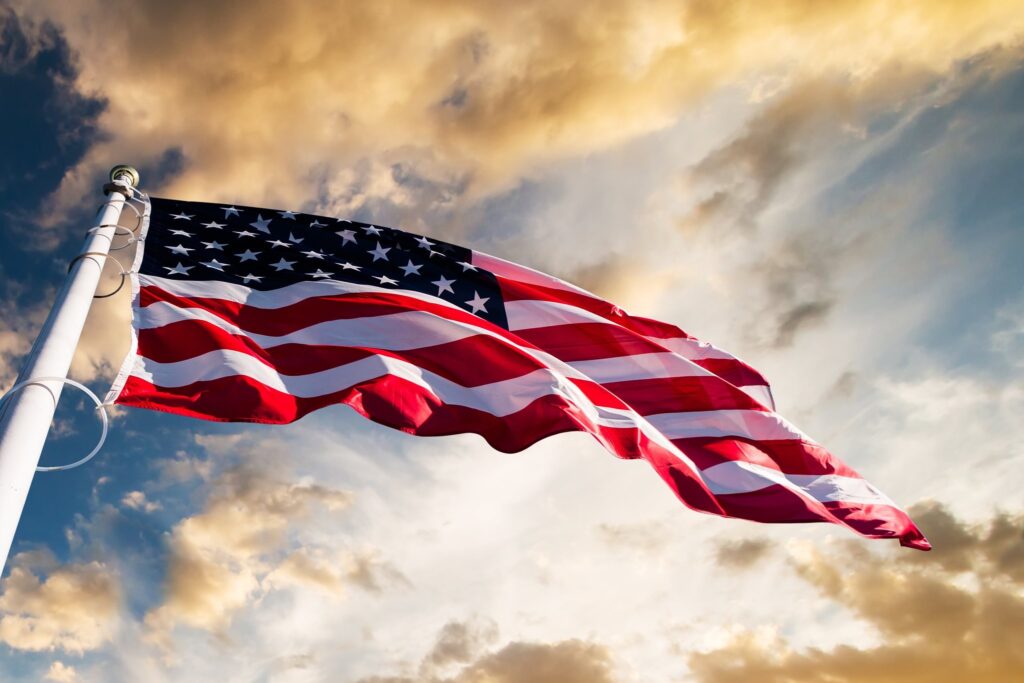
-
Lay Down Your Old Chains. Pick Up Your New Name.
It’s still June. You’d have to be living under a rock at the depths of the Mariana Trench to not know about Pride month, which in essence is an entire month dedicated to identity. While I have plenty of opinions on the merits or lack thereof regarding an entire 30 days dedicated to the discussion of orientation, I’m more drawn to the idea, the concept, the value of identity and its implications on our individual lives.
Several years ago, I pondered the impact of a name. When something inanimate, or even a typically mundane creature gains a name, the level of importance, value, and dignity changes. A dentist hunted a lion. No one cared. But that lion had a name: Cecil. And suddenly he wasn’t just a feline anymore. His death subsequently gained worldwide attention when before we’d be hard-pressed to think of any other time a lion was hunted became noteworthy. A law in Colorado is referred to as the Samson Law because an archery hunter killed an elk. Not just any elk, an elk named Samson. I ruminated on the idea of abortions and what their prevalence would be if we first called the “clump of cells” Rebecca, Stephen, Megan, Quinton, or Sarah. Would we toss their small bodies in trash cans if they had names? I’m not certain we’d be so cavalier about the procedure if we named the “fetus” before executing them.
What is the value of a name? If you have kids, think about how difficult it was to name them. How many names did you discredit because of negative experiences associated with a person bearing that same name? In many cultures, names are given or changed later in life to further describe the character or calling on the individual. Simon became Peter. Saul was renamed Paul. Here in Thailand, people are often given names but later given nicknames that help define who they are. A translator I knew was nicknamed Shopping because after a rather abusive and demoralizing encounter with his father, his mother took the young boy to a mall where the big letters SHOPPING were displayed above and whispered in his ear, “Someday you will be as big as that mall.” She was trying to keep Shopping from identifying himself as the victim of abuse and to call him to rise above it into something great.
Our names convey identity. We all want to be known. We’re in a constant state of tension between wanting to stand out and yet not be alone. We want to belong. We carry the burdens of past labels: whether someone had spoken them aloud or they were descriptions we placed on ourselves. We’re in a never-ending battle to overcome those false identities. Do we believe we’re stupid, incompetent, ugly, childish, insignificant, or afraid? Where do those identities come from? Why do we think those thoughts and believe those identities? Are they even identities in the first place? Have we elevated a lie and given it authority to define us?
It seems so many self-imposed identities are not identities at all. We drop a plate and suddenly we’re clumsy as if we’ve never been able to carry a single object without breaking it before. We make a mistake in a 4thgrade spelling bee and suddenly we identify as stupid. Our bodies haven’t grown at the same rate as our peers so we believe we’re ugly, gangly, and unworthy. It’s remarkable really. Honestly, it’s so easy to see how others live their identity lies yet we’re blinded to seeing our own.
What if we had a given name? Not just a name our parents may or may not have labored in vain over. But a true identity given to us by the One who actually formed us? Is it possible that He who knows the hairs on our head cares about speaking our true name? The Great God of the universe, the One who SPOKE everything into existence. The One who devised the greatest caper of all ages to rescue those who could do absolutely nothing for Him by sacrificing himself on a Roman cross. That God, who took on flesh, walked this earth, dined with friends, laughed, cried, and told stories, is the God who speaks and calls us by name. Not the name on our birth certificate, but our real name. The name that conveys our true identity, the one He crafted.
What if we knew THAT name? What if we lived THAT identity? I asked myself those questions and honestly, the implications of the answers fired me up. If our great God who sent His only Son to lavish abundant grace on us calls me by name, why don’t I know it? Why can’t I hear it? It seems like a cruel joke. But then, what if I could hear it? What if I discovered and knew my given name? What if the God who speaks calls me by name and I actually hear it? What then? The excitement was powerful.
I believe we all crave an identity. Everyone. All of us. We desire to be known. We know we aren’t just another fish in the ocean, a zebra among a pack of stripes or bird in an indistinguishable flock. We’re more than that and deep down, we know it. But where does our identity come from? From ourselves? Are we sifting through personality profiles, feelings, and experiences? Are we trying to find our individual identity by placing ourselves into various groups, classes, orientations, clubs, and races? Or, is there a way to actually push through the noise, the junk, the lies, the hurt, shame, and chaos to find our true selves? If the God who created you as you and me as me, did so on purpose—with all our nuances, quirks, shapes, sizes, colors, and hair patterns the way He saw fit—is it too much of a stretch to think He actually has a name specifically for you? An identity? A real, authentic, and individually chosen identity?
I know mine. I just discovered it a few weeks ago. God didn’t just now give me a new name. It’s the name he gave me when He created me. It has always been there but now, I was given the tools to reveal it with intention. This discovery has transformed me. The transformation is not the same as going one way and now going another. Rather, it’s more like an expansion. Forgive me for the reference as it’s been years since I’ve seen the movie but maybe the experience is like Jim Carrey’s character in the Truman Show. His world was real inside that dome, but that wasn’t the real world. When he finally discovered there was more than what he’d always believed to be his whole world, things changed. He saw differently. He needed to see who he really was. But unlike a fictitious character in a marginally humorous movie, I have seen the lies, broken free, and found my true identity. I didn’t create my identity and it isn’t the one I would have chosen for myself. But it’s mine. Spoken to the deep crevices of my heart by the God who speaks.
I’ve been going to church all my life. I’ve heard all about having a “personal walk with Jesus.” I know about “praying without ceasing,” and “Love the Lord with all your heart, mind, soul and strength.” I’ve been taught to read my Bible daily and pray so I can be close to Him. But I’ve never understood it the way I understand it now.
Maybe our lives are disconnected, lacking purpose, blown around, and shallow because we haven’t been taught how to be known by the one who knows and made us. Doesn’t it stand to reason that if you can truly know God and experience being fully known, just maybe some power or entity who detests God would want to prevent that heavenly orchestrated relationship from flourishing? The same evil that rejoiced when Jesus died on that cross is the same evil who got his teeth kicked in three days later when the tomb was empty. If the Father of Lies comes to steal, kill, and destroy, what makes you think you’re not on his list of targets? Why wouldn’t he make you believe a lie and draw up an identity for yourself through your own power? The last thing he wants is for you to be known by the One who created you.
If any of this pings deep down within you, I’d offer a book recommendation that guided my transformation:
Click here to purchase “Living Fearless” by Jamie Winship.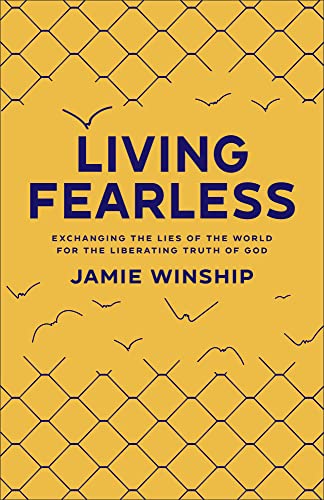
This is not a casual read but it isn’t some scholarly read for doctoral candidates either. Read it cover to cover over a dedicated course of a few days. Make the time to get away. Turn off your phone. Grab a notebook and a pen. Eliminate the distractions. When you’re done, I’d love to hear your name, that true identity given by the One who speaks.
Let’s lay down our old chains and pick up our new names.
(The title photo is just a beautiful photo I took on the beach in Penang, Malaysia where I read Jamie’s book and uncovered my identity.)
-
MORE IMPORTANT THAN A FILTER
I was explicitly told to by my manager at work to always relate whatever project I’m working on or the changes I’m suggesting back to the Scriptures. Let Jesus be THE authority, not Rodney Keim “The Missionary.” The Thai people by nature and culture, are very deferential. Even if they fully disagree with everything I might say, my position as a missionary from America, places me in a position of authority, whether it is merited or not. They might know a better way or have more experience than me, but they will very likely acquiesce to my position simply because their cultural upbringings tell them my status is greater than their’s. We as Americans don’t have a problem verbally battling for better ideas. However, observing our cultural differences is critical to moving forward as a team.
My job title at the moment is “Facilities and Agricultural Advisor.” My current role is to look over the property with fresh eyes and seek out areas of improvement, research how these improvements can be made, and make efforts to implement my research. An area I stumbled upon that didn’t look quite right was the tilapia and catfish farm. ZOE raises their own fish for consumption, but it hasn’t gone as smoothly as they had hoped. The fish have either underperformed, taken too long to reach consumption size, or simply died off. I have no training when it comes to aquaculture, but I do have a knack for spotting things that don’t seem on target. My first look at the fish farm tanks immediately piqued my curiosity as to a potential problem. The water looked like chocolate milk. A general rule I learned many years ago was “animals under stress don’t perform.” Regardless of the animal in question, if they are stressed because of poor handling, extreme temperature, the presence of pests, or low-quality environment, they simply won’t thrive. They won’t eat right or enough. They’ll get sick. The problems pile on top of each other ultimately leading to death.
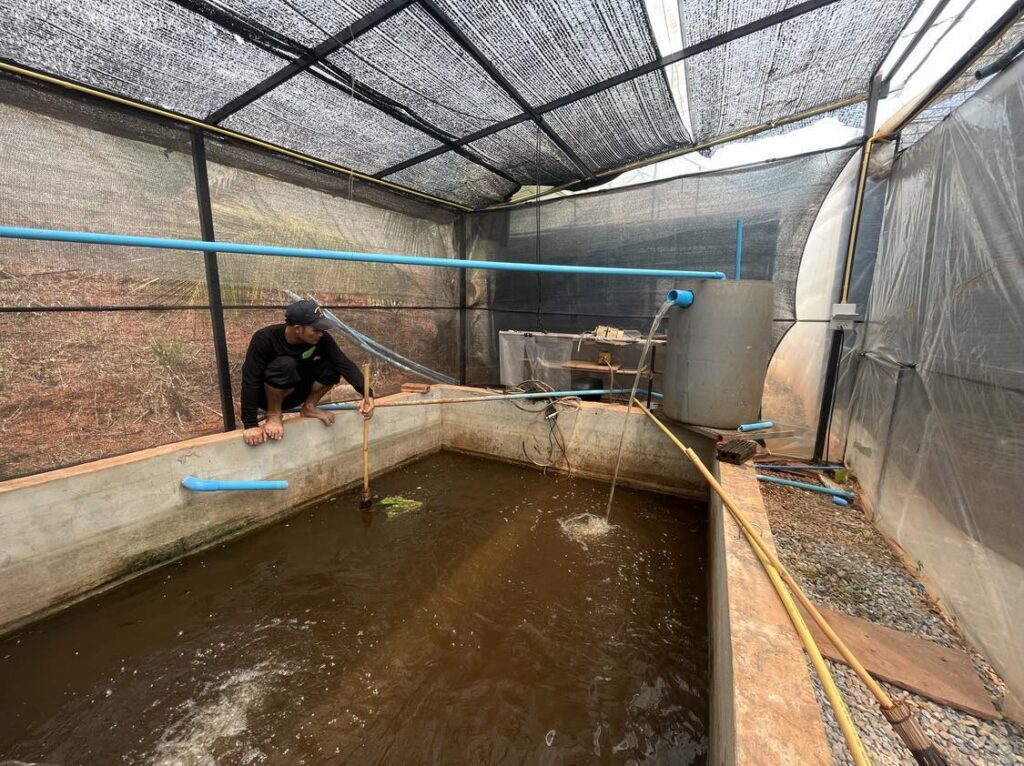
There are over 300 white and orange Tilapia in this tank. Where are they? I could have explained all my training to the Thai staff, but it likely wouldn’t have landed with the weight with which it had bothered my conscience. Fish in Thailand are raised in dirty water all the time. The large ponds and lakes around are all murky and yet people still catch seemingly healthy fish. Plus, they’re fish right? Who cares about a stupid fish?
Remembering my manager’s imperative to allow the Bible to be the supreme authority, I believe God sparked my creativity. I asked a couple of the Thai staff in charge of the fish farm to picture what the water looked like in the garden of Eden. When everything was made perfect, could they picture what type of water the fish were swimming in? Of course, they said the water was clear and clean. This isn’t a revelation. No one needs to be told what perfect water looks like. We all intrinsically know that water should be clean. Furthermore, I told them to think about the air quality we were experiencing. I asked if they felt healthy, strong and motivated to work. I asked if they thought the air in Eden was smokey. Again, they knew immediately it wasn’t. I explained how we all felt off-balance breathing the smokey air and knew we would feel better when the rains come and clean the air. Would it be hard to imagine that the fish would feel the same way, that the water they live in has a direct effect on their wellbeing like the air we breathe? The lightbulbs clicked on in their heads and got excited about solving the problem.
For less than $60 USD, we were able to build 2, double barrel fishpond filters utilizing a lot of materials already on hand. The one Thai staff member who has felt demoralized by the failures of the fish project, has had a renewed sense of purpose, taking pride in his work. He knows healthy water equals healthy fish, which in turn equals healthy food for rescued kids. He knows his area of responsibility is directly related to restoring trafficked kids and orphans. The pride I’ve seen swell in him as been a joy. He stands taller, smiles brighter, and looks forward to making his area look better. We’re still tweaking and adjusting the fish farm, but the Thai staff have a joy about the process which I hadn’t seen before.
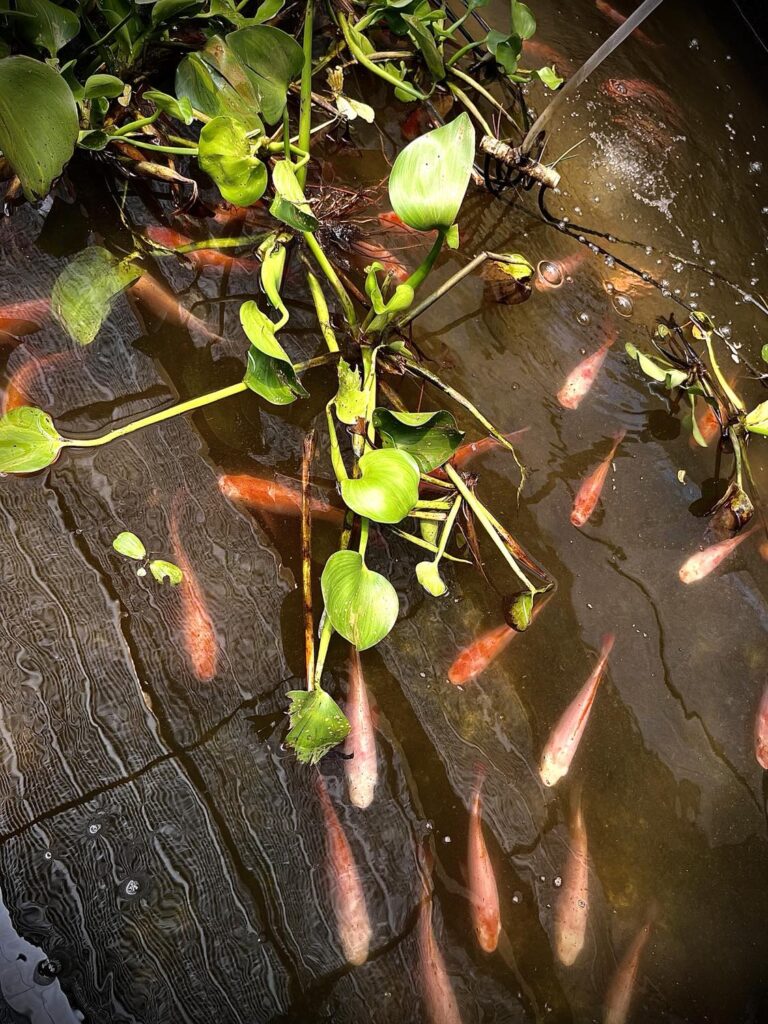
You can actually see the bottom of the tank which is more than 2′ down. Had I not been emphatically told to relate all my projects back to God, we still would have likely installed filters at my recommendation but the joy in my co-worker’s heart would most assuredly be absent. Could it be God cares more about His children’s hearts than fish? I think so. I’m slowly learning to do things His way, but learning nonetheless.
-
“IT COULD BE WORSE” IS NOT THE SAME AS BEING “GOOD”
It’s amazing to realize how fast I can adapt to new surroundings and at the same time fail to understand the impact of that ability. If you have been following us, you’ve likely seen us post about the air quality in Chiang Mai (like Alisha’s post from a few weeks ago: https://ourparadoxology.com/breathing-paradox/). From mid-January through late April or May, villagers in Northern Thailand, Laos, and Myanmar routinely burn the jungles, fields, ditches, and rice paddies. There’s debate as to the reason for this practice but the results are the same. Due to the mountainous terrain, lack of seasonal rainfall, and shortage of wind, the rising smoke has nowhere to go and subsequently hovers like a suffocating blanket over Chiang Mai.
Having lived on open prairies of North Central Nebraska, I never once thought about air quality. We were always breathing fresh air. “Bad air” was how we might have referred to seasonal pollen, but, even then, the pollen signified vibrant and healthy ecosystems all around us.
The Air Quality Index (AQI) has six color ranges: Green 1-50, Yellow 51-100, Orange 101-150, Red 151-200, Purple 201-300, and Maroon 301+. The air quality in Atkinson, NE, regularly hovers in single digit territory, or comfortably Green. When we stepped off the plane in Chiang Mai, the air quality was about 125 – orange. By mid-April, we had air quality readings in excess of 500. Just this week, it has dropped for the first time since we’ve lived here to below 100 – yellow. Comparatively, we now feel incredible, and yet, we are still a long way from the air quality we’re used to.
What I am learning through all of this is how easily I adjust to circumstances around me, regardless of if they are positive or negative. When adversity becomes normal, I adjust to the new normal without regard to the consequences. It is like the slow boiling frog analogy. I think It is easy to understand the metaphor of the water increasing temperature just like the air quality getting worse. Just like the proverbial frogs, I acclimate to the harsh environment around me. One might argue to be an enviable dexterity of personality. What I don’t as easily recognize is that when the environment starts to improve (the water temp drops or air quality cleans up), I become excited and thankful for the relief, but don’t even realize that the new present conditions are still worse than what I should expect or desire. A water temperature of 120 is far less than 212, but not remotely close to the temperature a frog would normally be expected to thrive in.
While it’s a skill and positive attribute having the ability to function amid turmoil, tribulation, adversity, or hardships, the danger is being content with the new normal, or adjusting to a dangerous situation that isn’t as bad as it was at its worst, but still worse than it was before the situation arose in the first place. To put it another way, a child may start off clean but when he finds an irresistible mud puddle and proceeds to cover himself head to toe, the first action is to hose him off. It’s true that he’s cleaner than he was when the mud was caked in his hair, but it’s not the same as being clean.
My spiritual journey is the same. I may not be as flagrantly bad as I once was, but that’s not the same as being as clean as I should be. My ability to adapt is not a strength when it comes to getting comfortable to the sin around me, even when I experience great relief from previous degrees of sinful bondage. I think Satan uses the skill of contentment as a weapon against improvement: I’m better than I once was, but that is not the same as being as good as I should be. It’s not an argument for effort. I can’t clean my sin away more than I can make it rain to clear the smoke. My ability to adjust easily to new situations can subsequently be a barrier preventing me from experiencing the necessary cleansing only Jesus’ blood can offer.
